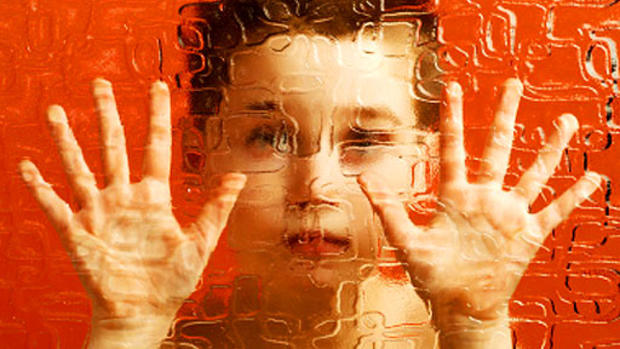First ADHD brain wave test approved by FDA
Updated 10:55 a.m E.T., 7/16/2013.
Diagnosing someone with attention deficit hyperactivity disorder (ADHD) is often a tricky science because it relies heavily on psychiatric and behavioral examinations. For the first time, the Food and Drug Administration has approved a device that could aid doctors by providing physical evidence for diagnosis.
The Neuropsychiatric EEG-Based Assessment Aid (NEBA) System is the first medical device of its kind to help diagnose the neurobehavioral disorder in children and teens. It uses an electroencephalogram (EEG) test to look at the patient's brain waves.
"Diagnosing ADHD is a multistep process based on a complete medical and psychiatric exam," Christy Foreman, director of the Office of Device Evaluation at the FDA's Center for Devices and Radiological Health, said in a written statement. "The NEBA System along with other clinical information may help health care providers more accurately determine if ADHD is the cause of a behavioral problem."
An EEG records electrical impulses given off by nerve cells. It records the number of times the signals are given off each second.
The test is often administered to evaluate sleep problems, measure unconsciousness, diagnose problems from head injuries and monitor the brain during surgery. Now, it may help diagnose ADHD.
NEBA is an up to 20-minute test that measures the ratio between the theta and beta brain wave frequencies. Previous research has shown the theta/beta wave ratio is higher in children and adolescents with ADHD than those without it. NEBA Health of Augusta, Ga. makes the system.
One manufacturer's study of 275 children and teens between 6 and 17 with behavioral concerns found the NEBA system helped doctors make a more accurate diagnosis of ADHD when used with clinical examination using standard diagnostic criteria, compared to just a doctor's exam alone.
ADHD is the most prevalent mental health disorder for U.S. children and adolescents, affecting nearly 7 percent of kids between the ages of 3 and 17 years old.
A report in April from the Centers for Disease Control and Prevention found 6.4 million school-aged children -- about 11 percent of kids in that age group -- have received an ADHD diagnosis.
Kids with ADHD often have trouble paying attention, controlling impulsive behaviors and/or are overly active. Symptoms may also include daydreaming, being easily distracted from schoolwork or play, forgetting things, talking too much, acting and speaking without thinking, not being able to play quietly, interrupting others and squirming or fidgeting.
Dr. Andrew Adesman, chief of developmental and behavioral pediatrics at Steven & Alexandra Cohen Children's Medical Center of New York in New Hyde Park, N.Y., told CBSNews.com Tuesday that it's too soon to tell whether doctors will embrace these tests for their patients. He pointed out that recent research papers, including a 2013 review published in the Journal of Attention Disorders, have found the science behind the diagnostic test isn't perfect.
"It's not going to completely replace other clinical measures and parameters that physicians and psychologists use," said Adesman, who is not involved in the test or the FDA's approval process.
The CDC has more information on ADHD.
